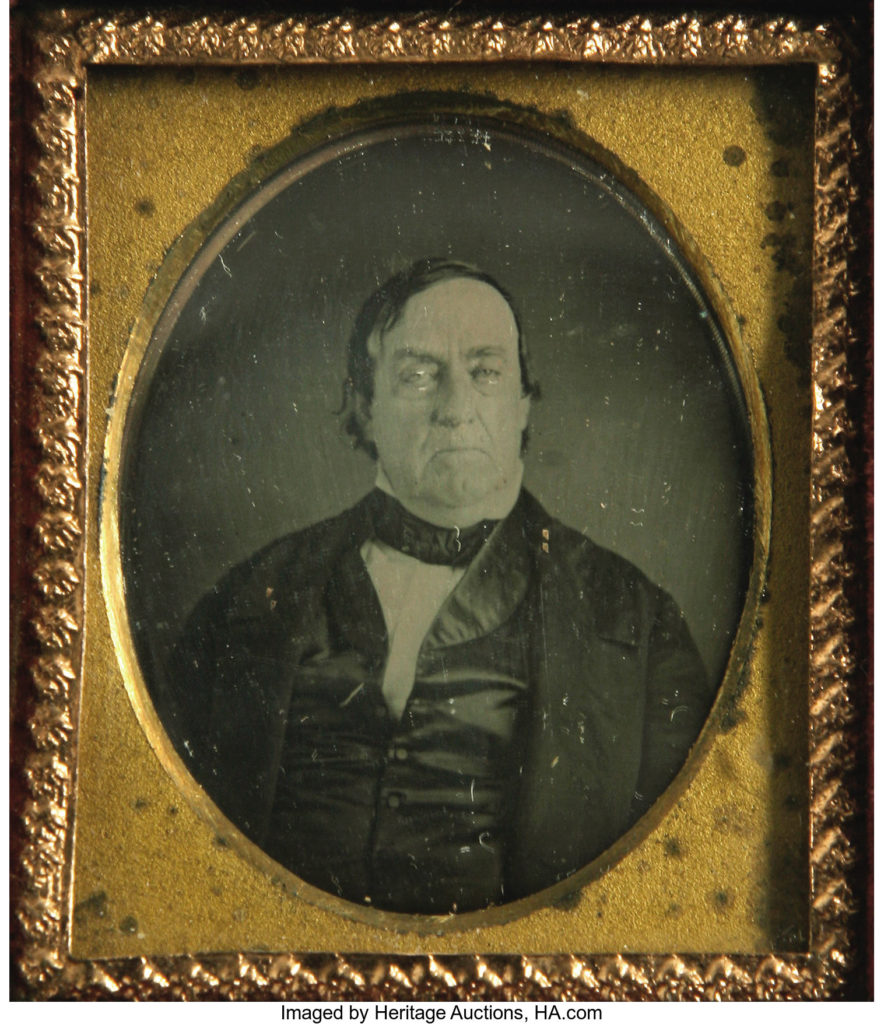
By Jim O’Neal
By 1848, slavery had inexorably become a national issue. Opinions were slowly but surely being formed, much as wet cement hardens while baking in the sun. Generally, most people agreed that slavery should be “hands off” and left alone in the 15 states where it already existed.
However, they disagreed violently over whether it should be permitted in new regions. Pro-slavers insisted it be allowed to follow the U.S. flag. But anti-slavery backers (primarily Northerners) strongly opposed expansion into federal territories. Their logic was impeccable. Strong containment policies would eventually lead to complete elimination everywhere. This was the same flawed thinking that the framers of the Constitution had tripped over when they permitted a 20-year phase-out period. Except the difference, of course, was that without this clause, there were not enough votes to ratify the Constitution. Deception? Probably, but there was an overarching priority in favor of ratification … kick it down the road … maybe it will just wither away.
Naturally, the political leaders of both the Whigs and Democrats were just as anxious to duck the issue entirely. Both parties relied on support from voters in every section of the country. However, the issue was now much too prominent and the slavery issue ended up playing a major role in the 1848 presidential election.
Meeting in Baltimore in May 1848, the Democrats were the first to select candidates. For president, they went for Michigan Senator Lewis Cass. He had been a territorial governor for years and would be the first Democratic candidate from the area known as the Northwest. Many years later (1861), as James Buchanan’s Secretary of State, he begged the president to send reinforcements to Fort Sumter to keep the South from raiding its guns and supplies. He resigned when Buchanan predictably refused; it was the only option the 79-year-old diplomat had to display his strong objections.
Cass was 6 years old when his mother held him up to the window of their home to watch the bonfires blazing in the streets of Exeter, when New Hampshire became the ninth and final state required to ratify the Constitution. When he resigned, he memorably said, “I saw the Constitution born, and I fear I may see it die.” The Constitution survived, but 620,000 Americans died in the war to preserve the Union.
Cass was solidly known as an advocate for “squatter sovereignty” – the right of settlers in federal territories to decide the slavery issue for themselves. At the Baltimore convention, the New York delegation quickly split over the selection of Cass for president, accompanied by a party platform that declined to take a firm stand on the extension of slavery. They simply walked out and, along with other anti-slavery people, organized the Free Soil Party, which was firmly dedicated to preventing slavery in all federal territories. They chose the hapless ex-President Martin Van Buren and Charles Francis Adams (son of the sixth president) with an unequivocal slogan: “Free Soil, Free Speech, Free Labor and Free Men.”
With the Democrats now divided, the Whigs made their choice at a convention in June in Philadelphia. Sticking to a “War Hero General” formula that proved to be successful, they confidently chose General Zachary Taylor of Louisiana, “Old Rough and Ready,” the hero of the recent war with Mexico. Many Whigs (including a young Abraham Lincoln) were appalled by the choice. Not only was he too old (64), but he had never been involved in politics! In fact, he had never even voted and admitted he knew little about national domestic issues.
Daniel Webster called him “an illiterate frontier colonel” and warned that many thousands of Whigs “will not vote for a candidate … simply because of a war record.”
Webster turned out to be terribly wrong and the party backed “Old Zach” just as they had selected “Old Tippecanoe” (William Henry Harrison) in 1840. Taylor easily beat Lewis Cass on Nov. 7, 1848 – the first presidential election that took place on the same day in every state and the first Election Day statutorily on a Tuesday.
Taylor died on July 9 two years later and was the last president elected who was not a Republican or a Democrat … a period of 198 years (yes, I know that Lincoln ran in 1864 for the Union Party after becoming the first Republican president in 1860). Third-party candidates do not do well … just ask Teddy Roosevelt.
Cass remains a good candidate for the most important yet least known of any politician in 19th century America.
 Intelligent Collector blogger JIM O’NEAL is an avid collector and history buff. He is president and CEO of Frito-Lay International [retired] and earlier served as chair and CEO of PepsiCo Restaurants International [KFC Pizza Hut and Taco Bell].
Intelligent Collector blogger JIM O’NEAL is an avid collector and history buff. He is president and CEO of Frito-Lay International [retired] and earlier served as chair and CEO of PepsiCo Restaurants International [KFC Pizza Hut and Taco Bell].
